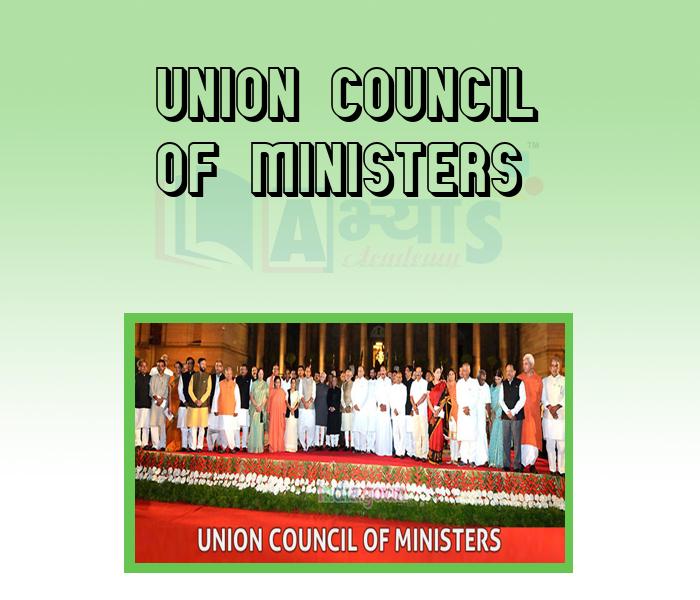Union Council of Ministers









Union Council of Ministers
Council of Minister's:
The Union Council of Ministers is formed under the leadership of the Prime Minister of the Republic of India. This Council comprises of the Cabinet Ministers, Ministers of State and the Deputy Ministers. The number of the members of the Council of Ministers has been specified in the Constitution of India. The Union Council of Ministers remains collectively responsible to the Indian Parliament. In addition to the collective responsibility, the ministers are also individually responsible for the functioning of their respective departments.
The Council of Ministers is responsible for preparing and introducing bills in the Parliament; to aid and advise the President in the exercise of his functions; to determine the policy and to implement all the decisions adopted by the Parliament of India.
(1) The President shall appoint other ministers in consultation with the Prime Minister.
(2) The Minister shall continue in his office till the President's pleasure.
(3) The Council of Ministers shall be collectively responsible to the Lok Sabha.
(4) Every Minister must take his oath of office and secrecy before the President before holding his office.
(5) If a minister cannot become a member of any House of Parliament till 6 months after holding his office, he has to resign from the Council of Ministers
A member of the Council of Ministers can remain on the post of minister for a maximum period of time without being a member of any House of parliament ? | |||
| Right Option : C | |||
| View Explanation | |||
Which of the following are correct : (a) The President shall appoint other ministers in consultation with the Prime Minister. (b) If a minister cannot become a member of any House of Parliament till 6 months after holding his office, he has to resign from the Council of Ministers. | |||
| Right Option : C | |||
| View Explanation | |||
According to the Constitution, all the executive power is vested in the President, however in reality all the executive power is vested in which of the following ? | |||
| Right Option : A | |||
| View Explanation | |||
Students / Parents Reviews [10]
About Abhyas metholodology the teachers are very nice and hardworking toward students.The Centre Head Mrs Anu Sethi is also a brilliant teacher.Abhyas has taught me how to overcome problems and has always taken my doubts and suppoeted me.

Shreya Shrivastava
8thIt was good as the experience because as we had come here we had been improved in a such envirnment created here.Extra is taught which is beneficial for future.

Eshan Arora
8thMy experience was very good with Abhyas academy. I am studying here from 6th class and I am satisfied by its results in my life. I improved a lot here ahead of school syllabus.

Ayan Ghosh
8thMy experience with Abhyas academy is very good. I did not think that my every subject coming here will be so strong. The main thing is that the online tests had made me learn here more things.

Hiya Gupta
8thOne of the best institutes to develope a child interest in studies.Provides SST and English knowledge also unlike other institutes. Teachers are co operative and friendly online tests andPPT develope practical knowledge also.

Aman Kumar Shrivastava
10thIt was a good experience with Abhyas Academy. I even faced problems in starting but slowly and steadily overcomed. Especially reasoning classes helped me a lot.

Cheshta
10thIt has a great methodology. Students here can get analysis to their test quickly.We can learn easily through PPTs and the testing methods are good. We know that where we have to practice

Barkha Arora
10thA marvelous experience with Abhyas. I am glad to share that my ward has achieved more than enough at the Ambala ABHYAS centre. Years have passed on and more and more he has gained. May the centre flourish and develop day by day by the grace of God.

Archit Segal
7thAbhyas Methodology is very good. It is based on according to student and each child manages accordingly to its properly. Methodology has improved the abilities of students to shine them in future.

Manish Kumar
10thI have spent a wonderful time in Abhyas academy. It has made my reasoning more apt, English more stronger and Maths an interesting subject for me. It has given me a habbit of self studying
